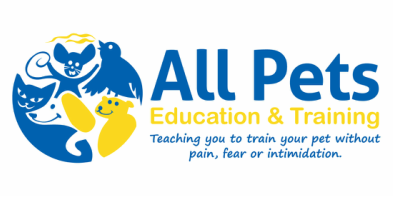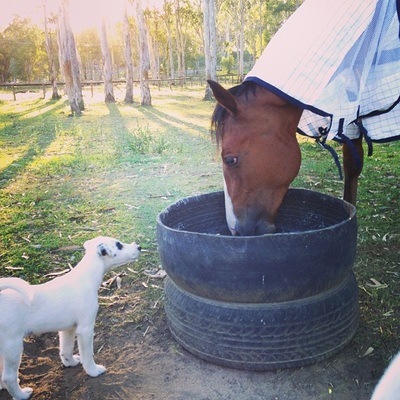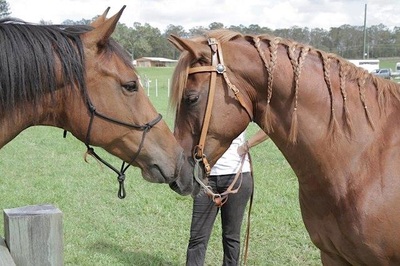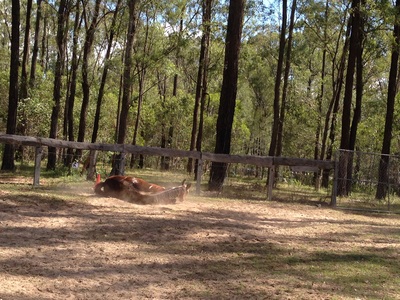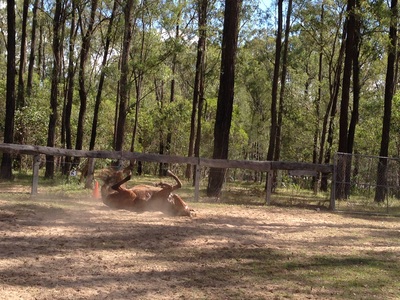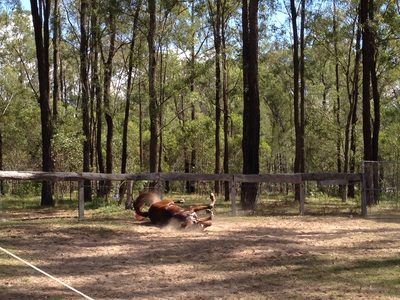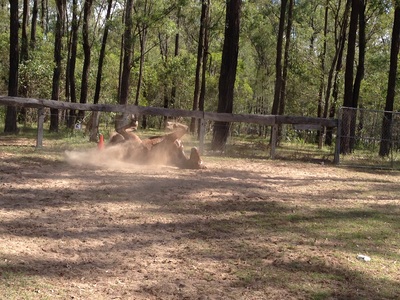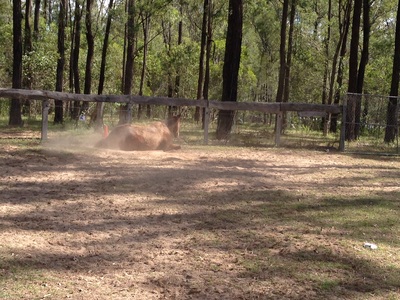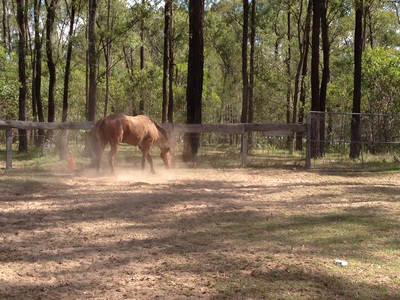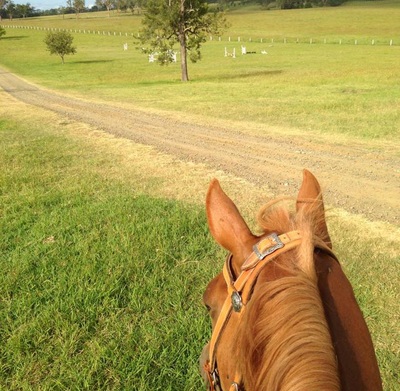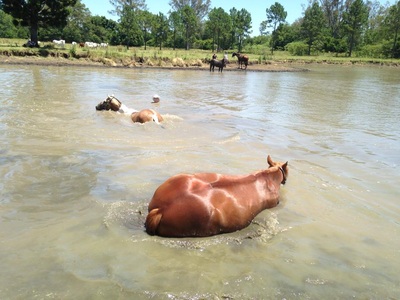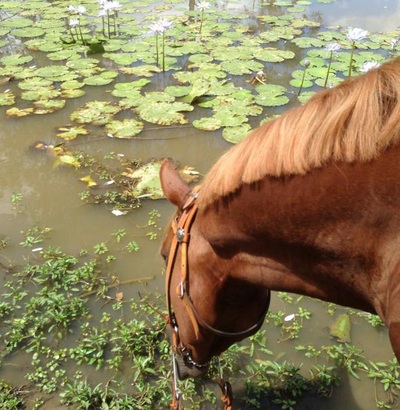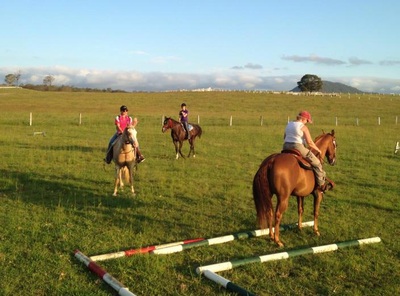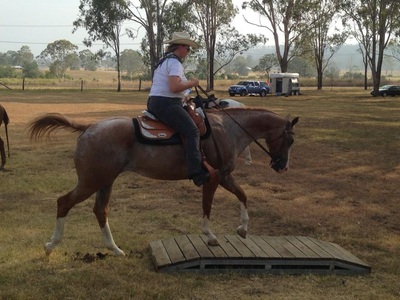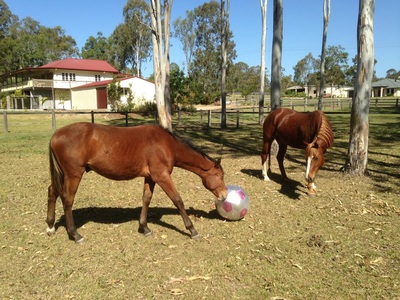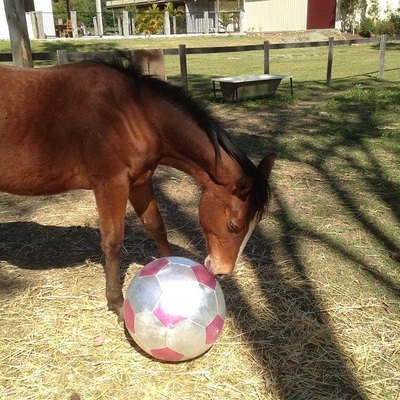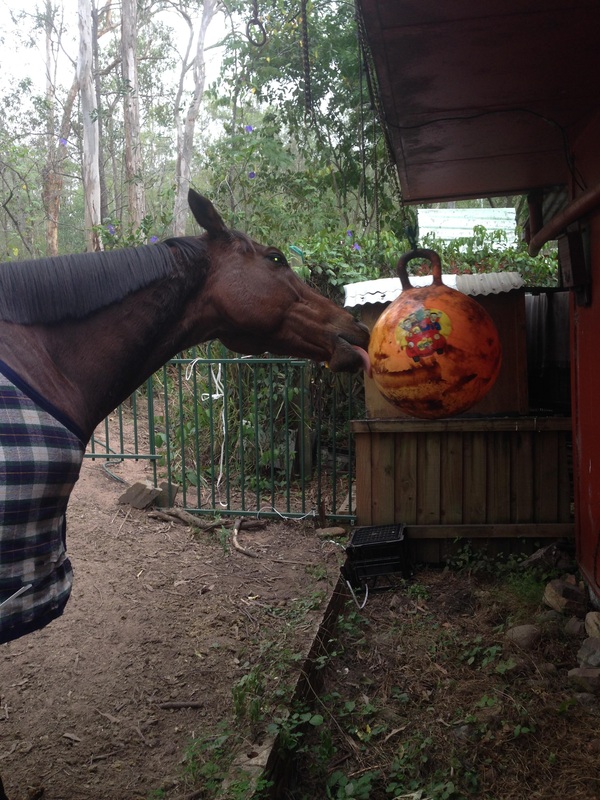Enrichment for Horses
Enrichment makes something more meaningful, substantial, or rewarding.
Enrichment improves something. (Vocabulary.com)
Enrichment can be broken down into types such as social, life, training and environmental.
Enrichment improves something. (Vocabulary.com)
Enrichment can be broken down into types such as social, life, training and environmental.
Social – Social enrichment involves social interaction (can be distant) with either another horse or an animal of another species (including humans). What is important is that the interaction involves no conflict. Horses are a prey species, so are highly motivated to interact with individuals of their own species for both companionship, play and as an anti-predator strategy.
Horses that are housed singly display greater activity and reduced foraging compared with horses kept in pairs or groups (Houpt and Houpt 1989). If you are unable to interact with your horse on a daily basis you should make arrangements for someone else to come and visit your horse for you.
Horses that are housed singly display greater activity and reduced foraging compared with horses kept in pairs or groups (Houpt and Houpt 1989). If you are unable to interact with your horse on a daily basis you should make arrangements for someone else to come and visit your horse for you.
Life – Life enrichment is allowing your horse to perform natural and normal horse behaviours. This includes rolling, playing in water, running etc.
Provide or allow access to dusty or grassy areas to roll in.
Provide or allow access to dusty or grassy areas to roll in.
Why not mix social and life enrichments and take your horse for a trail ride.
Or take your horse to a water source for a swim and frolic.
Or take your horse to a water source for a swim and frolic.
Training – Training enrichment is when the horse learns to do something, for a reward. This can include tricks or handy behaviours such as self-floating etc.
Teach your horse to target its nose to a target stick. Once they are doing this, you will find you have a way of moving your horse without need for ropes halters etc.
Taking your horse to club events and participating in training can be very rewarding for both horse and rider.
Teach your horse to target its nose to a target stick. Once they are doing this, you will find you have a way of moving your horse without need for ropes halters etc.
Taking your horse to club events and participating in training can be very rewarding for both horse and rider.
Environmental – Environmental enrichment usually involves you adding something to your horses life to make it more stimulating, rewarding or meaningful. This usually involves toys or food. Toys and food puzzles are great items that can be used.
An example is adding a ball to the horses environment – they can push it around.
An example is adding a ball to the horses environment – they can push it around.
You can even buy toys for horses that act as food dispensing toys.
These toys can be hung up high (high enough that it doesn’t pose an entanglement danger), the horse knocks them about and in doing so small treats drop out.
Many horses even appreciate playing with traffic cones or having access to mirrors.
If your horse is stabled, you can offer enrichment through the use of background noise by playing a radio – this can provide a calming effect.
Foraging is a large part of a wild horse’s daily routine – in fact they would usually spend a minimum of 10 hours per day grazing. Provide access to appropriate pasture, or if stabled, provide multiple foraging options.
Did you know some horse’s like vegemite? Try smearing some on a large ball (this was an old childrens ball hopper) and hanging (without risk of entanglement) for your horse to use.
These toys can be hung up high (high enough that it doesn’t pose an entanglement danger), the horse knocks them about and in doing so small treats drop out.
Many horses even appreciate playing with traffic cones or having access to mirrors.
If your horse is stabled, you can offer enrichment through the use of background noise by playing a radio – this can provide a calming effect.
Foraging is a large part of a wild horse’s daily routine – in fact they would usually spend a minimum of 10 hours per day grazing. Provide access to appropriate pasture, or if stabled, provide multiple foraging options.
Did you know some horse’s like vegemite? Try smearing some on a large ball (this was an old childrens ball hopper) and hanging (without risk of entanglement) for your horse to use.
